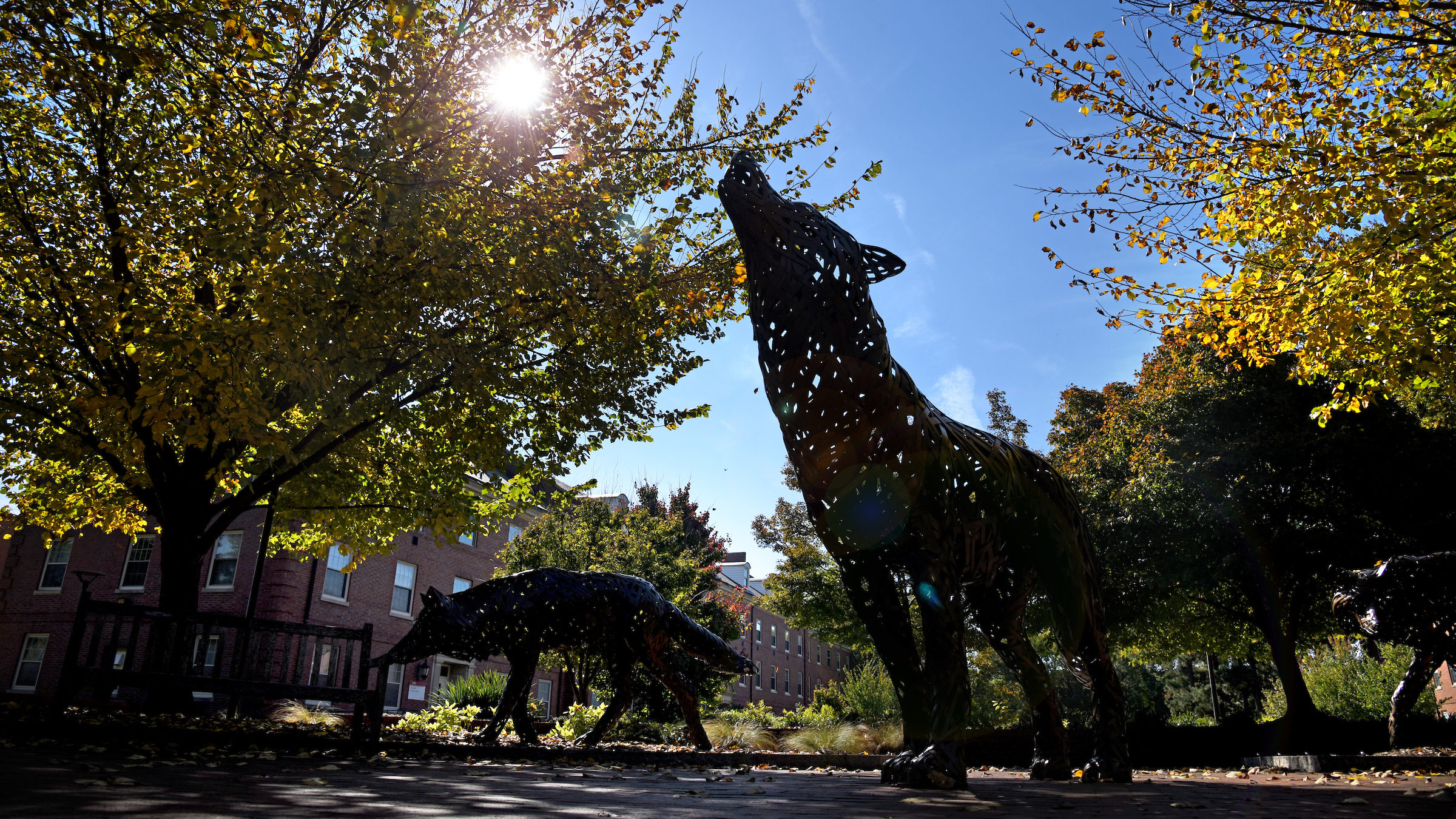Factors that Affect Career Choice and Diversity in Science
Insights from Marcus Lambert, Ph.D.

On September 8, 2020, Marcus Lambert, Ph.D., assistant dean of diversity and student life at Weill Cornell Medicine presented data around career choices of underrepresented postdocs in biomedical sciences to the NC State community.
Dr. Lambert’s presentation, entitled “Staying the Course: Factors that affect career choice and diversity in science” was co-sponsored by the NC State Office of Postdoctoral Affairs, Graduate School, & Office of Institutional Equity and Diversity.
Here, we present some highlights from his talk.
The Problem
Training & mentorship often do not align with careers available for Ph.D.s and postdocs
Academia has traditionally viewed graduate education and postdoctoral training as preparation for a faculty career.
However, estimates of the number of PhDs who enter tenure-track faculty positions range from 8 percent for life science Ph.D.s within 5 years of graduation to 20 percent for biomedical postdocs.
Thus, our training programs must reimagine the pipeline to address the needs of a changing scientific workforce, particularly as they relate to diversity.
Lack of Diversity in Faculty: A Leaky Pipeline
Perhaps one of the more striking datapoints Dr. Lambert presented during his talk is that while the percent of underrepresented minorities earning bachelors, Ph.D.s, and entering postdocs in the biological sciences has risen over the last 20 years, their representation in full professor roles has not increased since 2001.
Data have shown that underrepresented groups including women and certain racial/ethnic groups are less interested in a faculty career at research-intensive institutions than well-represented male researchers.
Surveying Postdocs to Understand Their Career Choices
Dr. Lambert presented data he and his colleagues collected from postdoctoral scholars regarding their motivations for academic research careers. This research group was specifically interested in understanding what factors motivate postdocs to persist in academia. In total over 1,200 postdocs from 50 universities were surveyed.
What were the results?
Nearly 50% of respondents reported a faculty career at a research-intensive institution as their top choice.
- Interest in a faculty career wains around year 2-3 of the postdoc, representing a potentially critical time for mentorship and career support to be provided.
- Those reporting that self-worth and career mentorship were large determinants in their career choice were more likely to indicate an interest in a research-intensive faculty career.
- Conversely, those rating financial security as a key determinant of their career choice were more likely to pursue non-faculty careers.
The Importance of Outcome Expectations & Research Self-Efficacy in Determining Faculty Career Choice
Two key metrics, outcome expectations and research self-efficacy were higher among those interested in pursuing a faculty career versus those who chose career paths outside academia.
- Outcome expectations: expectancy (will my effort lead to high performance), instrumentality (will performance lead to desirable outcomes), & valence (do I find the outcomes desirable) lead to a motivational force to pursue an academic research career
- Research self-efficacy: belief in one’s own ability to succeed at research-related tasks (publish, secure grants, mentor students, develop novel & successful research ideas)
Female postdocs rated themselves lower in research self-efficacy and had lower outcome expectations than male postdocs.
Self-worth, the sense of one’s own value or worth as a person, was also a strong factor in determining career choice.
In fact, the strongest predictors of underrepresented minority postdocs indicating an interest in pursuing a research-intensive faculty career were positive self-worth and high research self-efficacy.
Similarly, the best predictor for women indicating an intention of pursuing an academic research position was positive self-worth.
Research self-efficacy is associated with higher rates of first author publications, particularly for female and underrepresented postdocs. Thus, programs that increase research self-efficacy could have positive impacts on supporting postdocs and their overall research productivity.
Underrepresented postdocs desire more specialized training
Underrepresented postdocs were more likely to indicate a desire for more specialized training to assist them in pursuing a faculty career including:
- A transitioning to research independence course
- A scientific teaching course
- Fellowships and grants to support investigators like them
- Training in the application of basic science principles to community-based settings
Qualitive Insights – Advice for Pursuing a Faculty Career
Currently, Dr. Lambert is leading a new qualitive study asking postdocs to give advice to others pursuing an academic research career.
One response sticks out as excellent advice:
Being a successful academic researcher is somewhat akin to pursuing a career in music performance or professional sports. Science and research must be your real passion for which you are willing to work extremely hard and sacrifice. And even with hard work and sacrifice, and of course the requisite level of talent, you may not make it to the big leagues. Be sure you are willing to take this risk and that you can enjoy the journey no matter what happens.
Take-Home Points from Dr. Lambert’s Research
- Self-worth, career mentorship, & financial security were all strong predictors of intending to pursue an academic research career (or not)
- The likelihood of underrepresented postdocs persisting in academia increases most with self-worth
- Female postdocs are slightly discouraged by lifestyle when deciding whether to pursue an academic research career
- Those postdocs most comfortable with choosing an academic research career cited the following as important factors:
- adequate support with family & childcare
- financial stability
- geographical flexibility
These findings offer ideas about how to best support postdocs wanting to pursue faculty careers. A critical component is ensuring adequate support in the form of compensation, mentoring, training, and other resources to allow postdocs to pursue these careers with great confidence in their own abilities.
Advice to Postdocs
To make the most of your postdoc, Dr. Lambert recommends:
- Be strategic about your mentorship team
- Recognize that a career in academic research is a lifestyle which may or may not be suitable for you
- Thus, reflect on you motivation to pursue a faculty career
- Prepare for multiple career paths
- Assess your readiness & preparedness at each stage
- For two excellent resources around readiness for a faculty career see:
- Strengthen your research & writing skills
- Network
Make the Most of NC State Professional Development Resources
Explore more posts related to the academic career search in the Academic Packways section of our ImPACKful blog and visit the Graduate School’s Professional Development page for more resources to assist you in your training at NC State.
- Categories:


